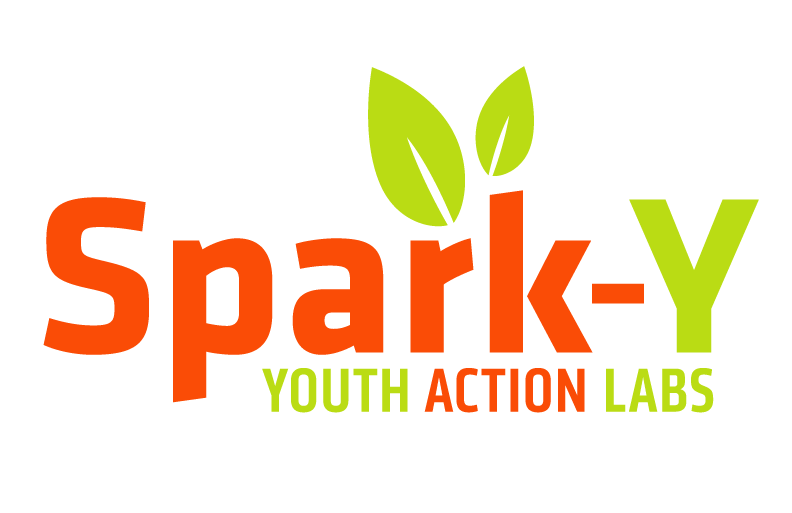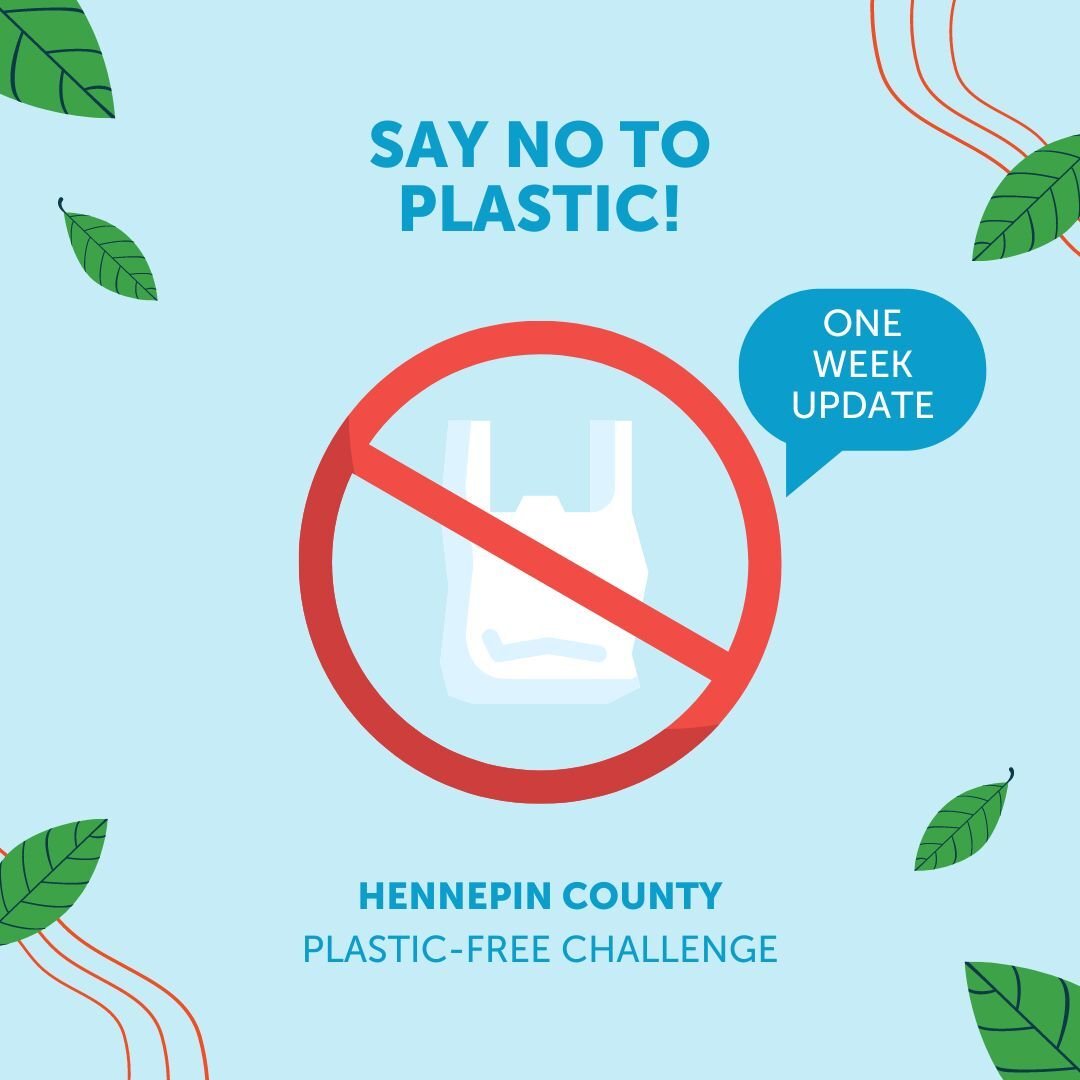The following blog post was written by Mary Nieting, Community Engagement Manager, and Pearl Pusiak, GreenCorps Member.
This February the staff at Spark-Y are participating in a challenge from Hennepin County, to reduce the amount of plastic they use at home and at the office. Organizations and businesses throughout the county signup and compete in challenges designed to bring awareness to how much plastic folks are using in their everyday lives. The challenges range from bringing reusable containers to restaurants for leftovers, to reducing the amount of plastic purchased overall, to finding personal care products made without plastic. Teams receive points for each challenge completed.
Spark-Y was introduced to the challenge by our GreenCorps member, Pearl Pusiak. Pearl recognized this challenge as an opportunity for Spark-y to further extend our teaching and practicing of sustainability, which is at the core of what we do. We teach our students sustainable practices and want to lead by example. This is also a good opportunity for us to audit our own practices and reflect on our impact, both personally and as an organization.
We started the plastic-free challenge last week, on the first, with about half of our staff signing up. Follow along after each week to see us reflect on the challenge and how it has impacted our lives at home and at the office.
Plastic has been found everywhere in our environment, from our bloodstream to the ocean floor. While recycling plastic is a good start, reducing our plastic consumption is shown to have a larger, positive impact on our environment. In the state of MN, there is a law that dictates that if you put a plastic that can be recycled into your recycling bin and it is collected, then the recycle facility must recycle it.
The recyclable plastics are:
1 – Polyethylene Terephthalate (PET) – water bottles and plastic trays.
2 – High Density Polyethylene (HDPE) – milk cartons and shampoo bottles.
5 – Polypropylene (PP) – margarine tubs and ready-meal trays.
But there are exceptions to these. Black plastic is not recycled because it is usually a combination of other recycled plastics and plastic can only be recycled so many times. Additionally, black plastic is most frequently used for microwavable meals and those trays contain an additive to make them microwave safe for our health, but that additive does not get recycled. There are many other exceptions and deterrents that keep our plastic waste from getting recycled.
The best way to impact this cycle is to stop using plastic as much as possible. And this is where the challenge comes in. Hennepin County has an online platform (check it out - here) where our team members have signed up for a variety of activities and tasks that will help them remove plastic in areas of their life. Each day we report back on the efforts we have made.
Our Community Engagement Manager Mary signed up to reduce plastic use in the kitchen. She says, “I was finding myself using a lot of plastic in my cooking - purchasing frozen vegetables in plastic bags, buying foods that came in plastic that I could otherwise buy in bulk. I acquainted myself with a few local options for buying in bulk (we have plenty of co-ops and even bulk markets - Tare, Eastside Co-op, Wedge Co-op- to name a few here in Minneapolis). The first week was rather slow as I have a lot of plastic already in my kitchen cupboards and freezer, but I am bringing more mindfulness to the grocery store when I go out.”
As our team continues in this challenge, we hope to bring awareness to the rest of the office, other organizations we partner with, and with the people around us. While this is called a challenge, it really feels like something that we can strive towards everyday, competition or not, to propel our mission of sustainability. With the community outreach we do, it just makes sense that we work to be an example of sustainability. It starts with us and ends when we have made an impact on our community and the earth.
1. Microplastics Have Been Found In The Human Bloodstream. (2022, April 8). Henry Ford Health - Detroit, MI. https://www.henryford.com/blog/2022/04/microplastics-in-human-bloodstream



